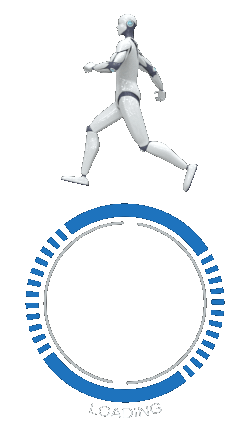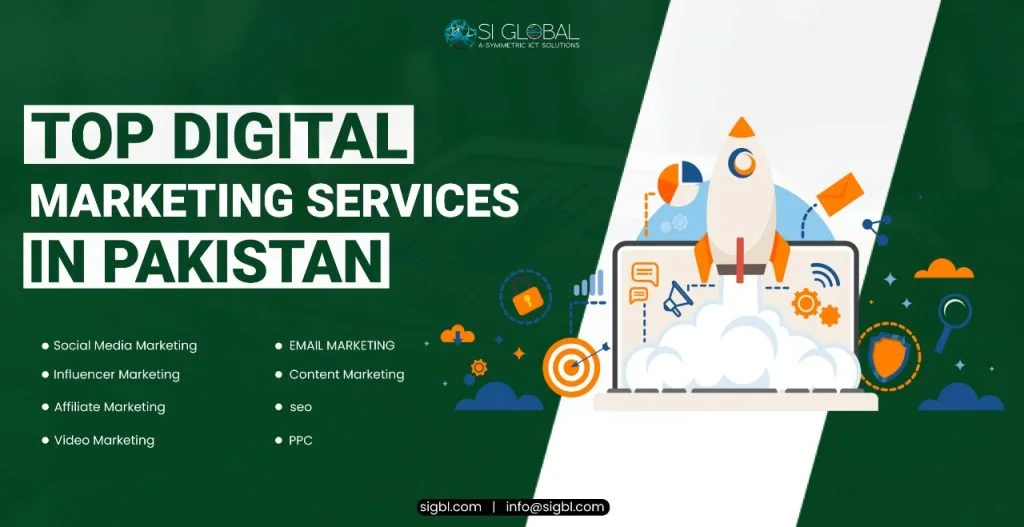What is Digital Marketing?
Digital marketing refers to the practice of promoting and selling products or services using online channels and digital technologies. It encompasses a broad range of strategies, tactics, and tools aimed at connecting businesses with their target audiences via the internet. In essence, digital marketing involves leveraging platforms like social media, search engines, websites, email, and mobile apps to reach potential customers. It contrasts with traditional marketing methods, which rely on offline channels such as TV, radio, and print ads.
Through digital marketing, businesses can engage with their audience in a more personalized and interactive manner. This includes techniques like search engine optimization (SEO), pay-per-click (PPC) advertising, content marketing, and social media marketing, all designed to increase visibility, drive traffic, and convert leads into customers.
Why is Digital Marketing Important?
Digital marketing is crucial for businesses in the modern era for several reasons:
- Wider Reach: With over 4.5 billion people using the internet, digital marketing allows businesses to reach a global audience, far beyond the limits of traditional marketing methods.
- Cost-Effective: Compared to traditional advertising like TV or print ads, digital marketing can be significantly more affordable. Campaigns can be scaled according to budget, and businesses of all sizes can compete for attention in the online space.
- Measurable Results: One of the most significant advantages of digital marketing is the ability to track and measure results in real time. With tools like Google Analytics, businesses can monitor the effectiveness of their campaigns, track ROI, and adjust strategies as needed.
- Targeted Advertising: Digital marketing allows for highly specific audience targeting based on demographics, interests, behaviors, and more. This ensures that the right message reaches the right people, increasing the chances of conversion.
- Engagement and Interaction: Unlike traditional marketing, digital marketing enables two-way communication between businesses and consumers. This interactive approach can boost brand loyalty and customer satisfaction.
Types of Digital Marketing
Digital marketing is a broad field, encompassing various types of strategies and channels. Here are the main types of digital marketing:
- Search Engine Optimization (SEO): SEO focuses on optimizing a website’s content and structure to rank higher in search engine results, thus attracting organic traffic. It involves keyword research, on-page and off-page SEO, and technical optimization.
- Content Marketing: This type of digital marketing involves creating and distributing valuable, relevant content to attract and engage a target audience. Content can take many forms, such as blog posts, videos, infographics, and eBooks.
- Social Media Marketing: Social media marketing leverages platforms like Facebook, Instagram, LinkedIn, and Twitter to promote a brand, engage with customers, and build a loyal following.
- Pay-Per-Click (PPC) Advertising: PPC is a model where advertisers pay a fee each time their ad is clicked. Google Ads is one of the most common PPC platforms, allowing businesses to bid for ad placements in search engine results.
- Email Marketing: Email marketing involves sending personalized messages or newsletters directly to a targeted list of subscribers. It’s a powerful tool for nurturing leads and maintaining relationships with customers.
- Affiliate Marketing: In affiliate marketing, businesses partner with affiliates who promote their products or services. Affiliates earn a commission for each sale made through their referral links.
- Influencer Marketing: This type of marketing involves partnering with influencers or industry experts who have a large following, leveraging their reach to promote a product or service.
- Video Marketing: Platforms like YouTube and TikTok have made video marketing an essential component of a digital strategy. Videos can help convey information in a visually engaging way, which can increase user engagement and drive conversions.
What Does a Digital Marketer Do?
A digital marketer’s role involves using digital channels to generate leads, drive traffic, and build brand awareness. Their responsibilities can vary based on their area of expertise, but generally, they perform the following tasks:
- Developing Strategies: Digital marketers create comprehensive marketing strategies based on business goals, customer profiles, and market trends. These strategies guide the entire marketing process, from campaign development to execution.
- Content Creation: Many digital marketers are involved in content creation, producing blog posts, social media updates, videos, and other forms of media that attract and engage the target audience.
- Managing Campaigns: Digital marketers manage PPC campaigns, SEO efforts, email marketing, and more. They ensure that campaigns are optimized for performance, and they constantly monitor and tweak strategies to maximize results.
- Analyzing Data: Analyzing marketing data is critical for understanding the success of campaigns. Digital marketers use tools like Google Analytics to measure traffic, conversion rates, and user behavior, using insights to improve future campaigns.
- Engaging with Customers: Engaging with customers on social media, responding to emails, and creating customer journeys that guide prospects through the sales funnel are key components of the role.
Inbound Marketing vs. Digital Marketing Which is it?
While inbound marketing and digital marketing are often used interchangeably, they are distinct concepts. Inbound marketing is a strategy that focuses on attracting customers through valuable content and interactions, drawing them in naturally. It involves tactics like SEO, content marketing, and social media to pull prospects in.
Digital marketing, on the other hand, refers to any marketing activity conducted online. It includes inbound tactics but also encompasses paid advertising methods, like PPC campaigns or display ads, where businesses push their message to a broader audience.
Key Differences:
- Inbound marketing is a subset of digital marketing.
- Inbound marketing relies on content to attract leads organically, while digital marketing can include both organic and paid methods.
Does Digital Marketing Work for All Businesses?
Yes, digital marketing can work for virtually any business, regardless of size or industry. However, the approach and strategies should be tailored to fit the business’s specific goals, audience, and market conditions. Here’s how digital marketing can work for different types of businesses:
- B2B Businesses: For B2B companies, digital marketing focuses on lead generation through tactics like SEO, content marketing, and LinkedIn advertising, where long sales cycles require nurturing leads over time.
- B2C Businesses: B2C businesses typically focus on quick conversions and may use PPC advertising, social media marketing, and influencer partnerships to reach consumers directly.
- Local Businesses: Digital marketing also works for small or local businesses. Local SEO, Google My Business optimization, and location-based PPC campaigns help these businesses get discovered by nearby customers.
That said, the success of digital marketing depends on the execution and adaptation of strategies to meet specific business needs and customer behaviors.
How to Do Digital Marketing
To start with digital marketing, follow these steps:
- Define Goals: Start by clearly defining your business goals. Whether it’s increasing brand awareness, generating leads, or driving sales, knowing your objectives is essential for creating a targeted digital strategy.
- Identify Your Audience: Understanding your target audience’s demographics, interests, and pain points helps tailor your marketing efforts. Customer personas can be developed based on this research.
- Choose Your Channels: Select the most relevant channels to reach your audience, such as social media, email, or paid advertising, depending on where your customers spend the most time online.
- Create Content: Develop valuable content that resonates with your audience. This can include blog posts, videos, infographics, and more. Be consistent in delivering content that aligns with your brand and audience needs.
- Monitor and Analyze: Digital marketing is an iterative process. Regularly monitor your campaigns using analytics tools to measure performance. Make adjustments as needed to optimize results.
- Experiment: Don’t be afraid to experiment with different types of content, formats, and advertising methods to see what resonates most with your audience.
Digital Marketing Examples
- SEO Campaign: A company that uses SEO techniques to rank on the first page of Google for relevant search terms, driving organic traffic to its website.
- Social Media Advertising: A brand running Instagram ads to target a specific audience segment based on interests and demographics.
- Email Marketing Campaign: A retailer sending out a personalized email with special offers to previous customers, encouraging repeat purchases.
- Content Marketing: A business creating a blog post series on industry trends to position itself as a thought leader and engage its target audience.
- PPC Advertising: A company using Google Ads to bid on specific keywords, ensuring its website appears at the top of the search engine results for those terms.


